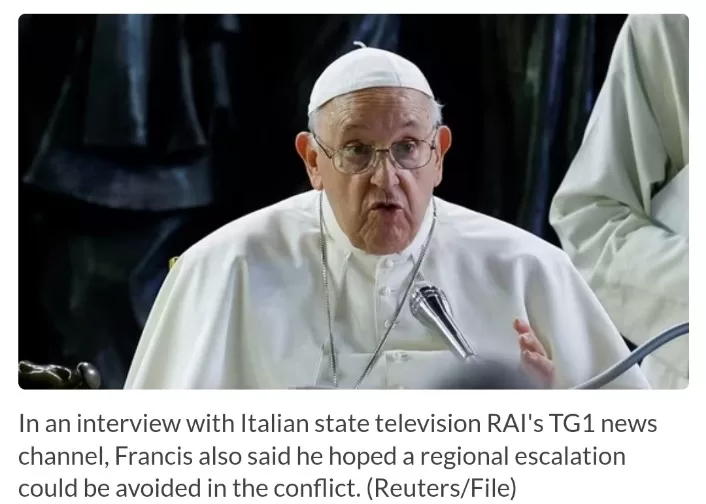In a recent interview with Italian state television RAI’s TG1 news channel, Pope Francis made a compelling case for a two-state solution to address the long-standing Israel-Palestine conflict. The Pontiff stressed that such a resolution is crucial to bringing an end to the ongoing conflicts that have plagued the region.
Expressing his concerns about the escalation of antisemitism, Pope Francis noted that much of this prejudice “remains hidden” and should be addressed collectively. He emphasized the necessity for harmonious coexistence between the Israeli and Palestinian peoples, advocating for a solution based on the principles of the Oslo Accords, which outline the establishment of two distinct and well-defined states.
Pope Francis also highlighted the significance of Jerusalem, proposing a special status for the city. Jerusalem’s unique cultural and religious importance to Christians, Muslims, and Jews alike necessitates a distinctive arrangement that accommodates all parties involved.
The Oslo Accords, forged in 1993 by Israeli Prime Minister Yitzhak Rabin and Palestine Liberation Organisation leader Yasser Arafat, represented a pivotal moment in the pursuit of limited Palestinian autonomy. Despite subsequent efforts, such as the Camp David summit in 2000, involving U.S. President Bill Clinton, Israeli Prime Minister Ehud Barak, and Yasser Arafat, a final peace agreement has remained elusive.
The city of Jerusalem, captured by Israel in 1967, has been a focal point of contention. In 1980, Israel declared Jerusalem as its “united and eternal capital,” a declaration contested by Palestinians who view the eastern part of the city as the future capital of their state.
The international community has long proposed the idea of Jerusalem having a special or international status due to its significance to multiple faiths, but Israel has consistently rejected such suggestions.
Pope Francis’s call for a two-state resolution and a special status for Jerusalem underscores the ongoing complexity of the Israel-Palestine conflict, which remains a matter of international concern and diplomatic efforts.
By Reuters





